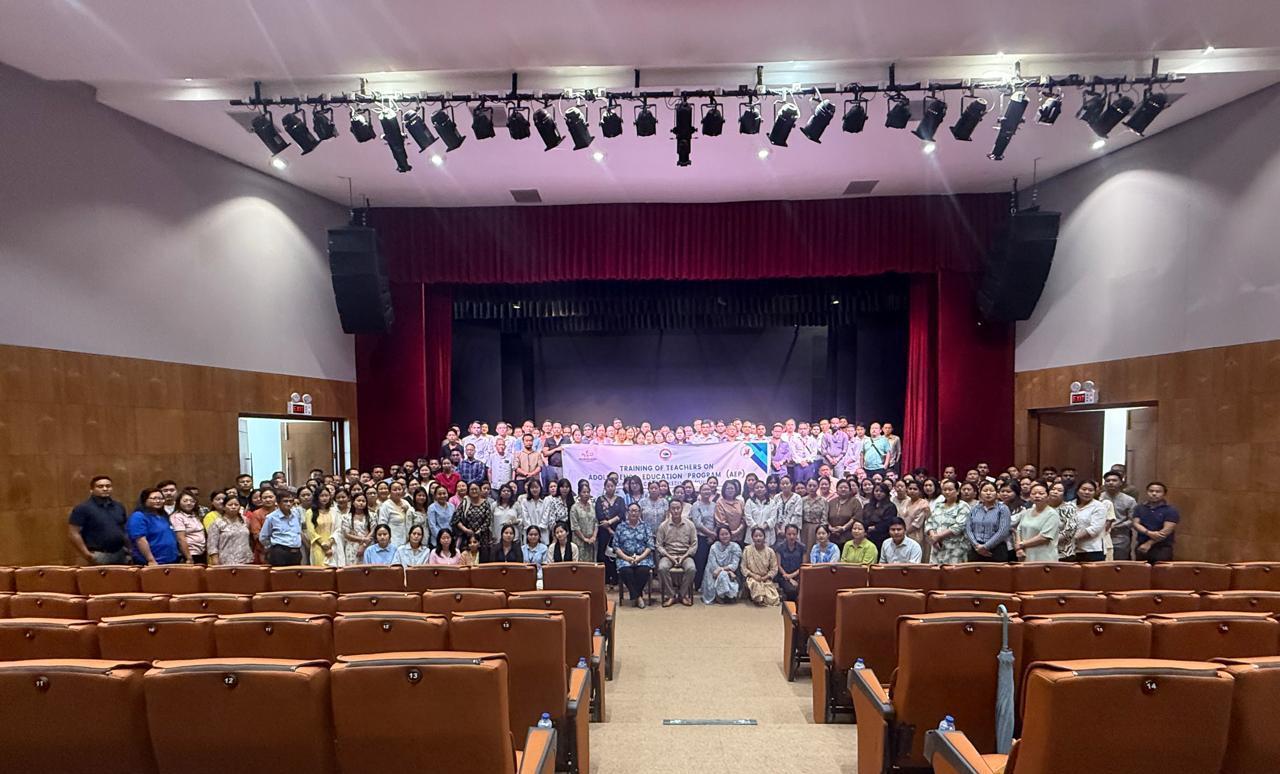
Officials of NSACS, NBSE and SCERT along with the
participants during a one-day training on adolescence education programme in
Dimapur on Friday.
- DIMAPUR — A total
of 240 teachers representing 191 registered schools under the Nagaland Board of
School Education (NBSE) from Dimapur, Chümoukedima and Niuland districts were
trained on Adolescence Education Programme (AEP) during a one-day training held
at Town Hall, Dimapur, on Friday.
- The training was organised by the Nagaland State AIDS Control
Society (NSACS), in collaboration with NBSE and the State Council of
Educational Research and Training (SCERT), Nagaland.
- An update from NSACS stated that the training was conducted
with an aim to strengthen the implementation of AEP at school level and equip
educators with the knowledge and skills necessary to support adolescents in
making informed, responsible and healthy life choices.
Also read: Kohima residents show solidarity with Indian arms forces
- Key sessions of the programme included ‘Basics of HIV and
sexually transmitted infections (STI),’ ‘Growing up and adolescent reproductive
and sexual health,’ ‘Life skills for HIV prevention,’ ‘The HIV and AIDS
(prevention and control) Act, 2017,’ ‘Mental health and substance abuse,’ and
‘Implementation of AEP in schools.’
- In his address, the NSACS project director, Dr. Ahu Sekhose,
emphasised the vital role of teachers in creating a supportive and informed
environment for young people. He encouraged educators to proactively address
adolescent concerns with sensitivity and scientific understanding.
